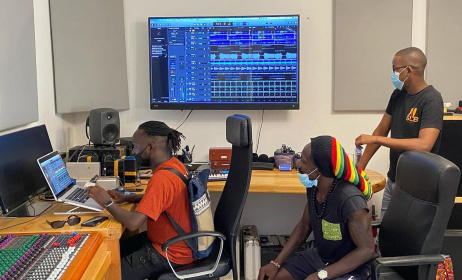Incoherent policy, copyright conflicts inhibit artistic rights in Kenya – PANAF report
The Pan African Network for Artistic Freedom (PANAF) and Kenyan record label Ketebul Music have unveiled a study evaluating the practices, challenges and opportunities surrounding the freedom of artistic expression in Kenya.
 The PANAF study aims to provide a guide promoting and protecting freedom of artistic expression. Photo: PANAF
The PANAF study aims to provide a guide promoting and protecting freedom of artistic expression. Photo: PANAF
The report published on 4 July, titled An Assessment of Artistic Freedom: Kenya, examines the challenges artists and cultural workers face in the practice of their right to freedom of artistic expression.
The document aims to guide the government and other stakeholders in effectively promoting and protecting these rights, benefiting both the creative community and society as a whole.
The project reviewed the legal framework regulating artistic freedom of expression and the copyright environment in Kenya and provided recommendations by identifying gaps around artistic freedom.
The study uncovered various challenges facing the freedom of artistic expression and the copyright business environment within the creative industry. These challenges include incoherent government policies, leading to an environment of uncertainty for copyright-based industries. Additionally, conflicts among copyright stakeholders remain unresolved due to the absence of legislation on streaming.
The study also revealed threats stemming from government censorship in film and the failure to operationalise regulations, policies and laws guaranteeing freedom of access to information. Discriminatory treatment of LGBTQ+ expressions was identified as another significant threat.
Furthermore, the research found that artist organisations and industry associations have not effectively advocated for matters promoting the economic status of artists.
In light of this, the study provided several recommendations to address these challenges. Key among them is the establishment of strong creative industry engagement platforms to bring together stakeholders from various sub-sectors of the industry through capacity-building initiatives.
The research also proposed the introduction of extensive entrepreneurship and enterprise development programmes for the creative industry, focusing on providing practical business skills education to women and youth.
“During the research process, the study encountered challenges such as a lack of up-to-date educational data and scarcity of materials,” lead researcher Robert Asewe said. “The incoherence of government sources of information due to internal reorganisation further complicated the research. Additionally, certain data provided could not be verified, and disputes in court added further complexity. The insights gained from this research study can serve as a valuable resource for policymakers, industry stakeholders and organisations working towards promoting artistic freedom and improving the copyright business environment in Kenya.”
The PANAF project is being implemented with the support of the Swedish Arts Council.
Download the report here.



























Commentaires
s'identifier or register to post comments